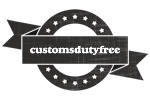Portugal is a country in southwestern Europe on the Iberian Peninsula. The Atlantic archipelagos of Azores and Madeira are part of Portugal and occupy strategic locations along western routes to the Strait of Gibraltar. Portugal is bordered by Spain and the Atlantic Ocean. The geography is mountainous north of the Tagus River. The government system is a republic; the chief of state is the president, and the head of government is the prime minister. Portugal has a service-based mixed economyA country's economic system which has both private and state... in which the government has privatized many state-controlled firms and liberalized areas of the economyThe management of money, currency and trade of a nation. The.... Portugal is a member of the European UnionEU. Previously called the European Community. An internation... (EU).
The Portuguese EconomyThe management of money, currency and trade of a nation. The... has been steady, expanding continuously since the third quarter of 2014, with a yearly GDP growth of 1.5% registered in the second quarter of 2015. The economyThe management of money, currency and trade of a nation. The... growth has been accompanied by a continuous fall in the unemploymentAn economic situation in which jobless people, often those w... rate (11.9% in the second quarter of 2015, compared with 13.9% registered in the end of 2014). The Government budgetAllocation of funds or the estimation of costs for a departm... deficit has also been reduced from the 11.2% of GDP in 2010 to 4.8% in 2014. These rates mark an inversion from the negative trends caused by the impact of the Financial Crisis of 2008 in the Portuguese EconomyThe management of money, currency and trade of a nation. The..., that made it to shrink for three consecutives years (2011, 2012 and 2013), accompanied by a high increase of the unemploymentAn economic situation in which jobless people, often those w... rate (that achieved a record of 17.7% in the early 2013). The crisis has caused a wide range of domestic problems that are specifically related to the levels of public deficit, as well as the excessive debtMoney owed to another person or organisation, such as a loan... levels, in the economyThe management of money, currency and trade of a nation. The..., culminating in the confirmation from Portugal to a €78 billion financial bailout from the EU in April 2011, following similar decisions from Greece and Ireland. The government that assumed office in June 2011 had to face tough choices in regard to its attempts to stimulate the economyThe management of money, currency and trade of a nation. The... while at the same time seeking to maintain its public deficit around the EU average.
A continued reduction in private- and public-sector debtMoney owed to another person or organisation, such as a loan... could weigh on consumption and investmentMoney or capital that is invested in a business or in an acc... in 2016, holding back a stronger recovery. The prior center-right government passed legislation aimed at reducing labor marketThe commercial activity of buying and selling goods and serv... rigidity, and, this, along with sustained fiscal discipline, could make Portugal more attractive to foreign direct investmentMoney or capital that is invested in a business or in an acc.... Under the center-right government, the budgetAllocation of funds or the estimation of costs for a departm... deficit fell from 11.2% of GDP in 2010 to 3.5% in 2015, reaching the EU-IMF target of 4%, but still above its EU fiscal obligations, under the excessive deficit procedure. EU-IMF financing expired in May 2014. The new center-left Socialist government, however, has signaled that it will unwind spending cuts associated with austerity while remaining within EU fiscal targets.
Important Details
- Country ISO3 : PRT
- Country Code : 620
- Income Group : High income
- Lending Category : P2PPeer-to-peer is a model for computer connectivity and file-
- Region : Europe & Central Asia
- Currency Unit: Euro
- WTO Member : Yes
- TradeThe buying and selling or exchange of goods and services. Th... organisations : EU, WTO and OECD
- world rank : 64
- Regional Ranking : 30th in Europe

